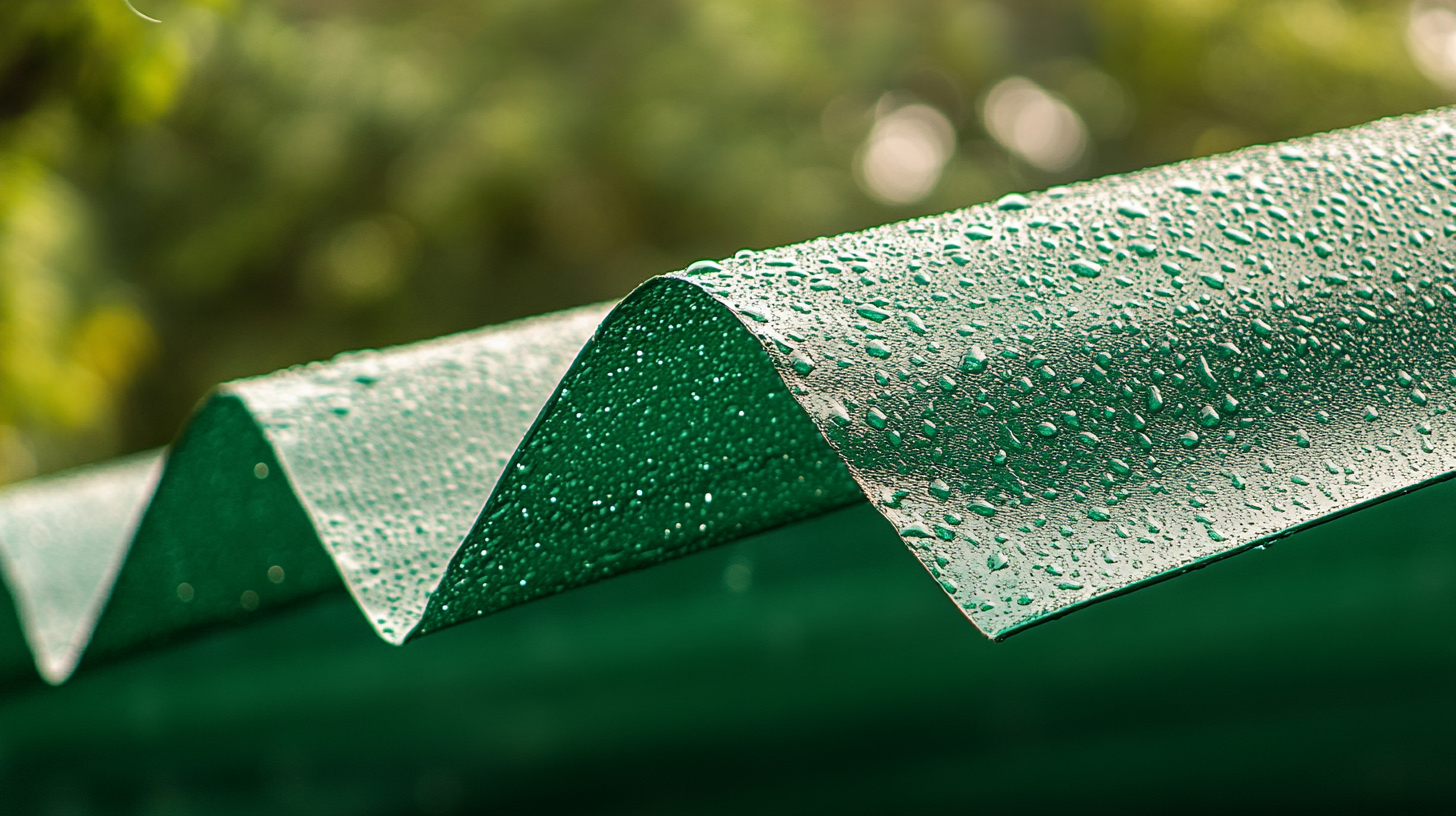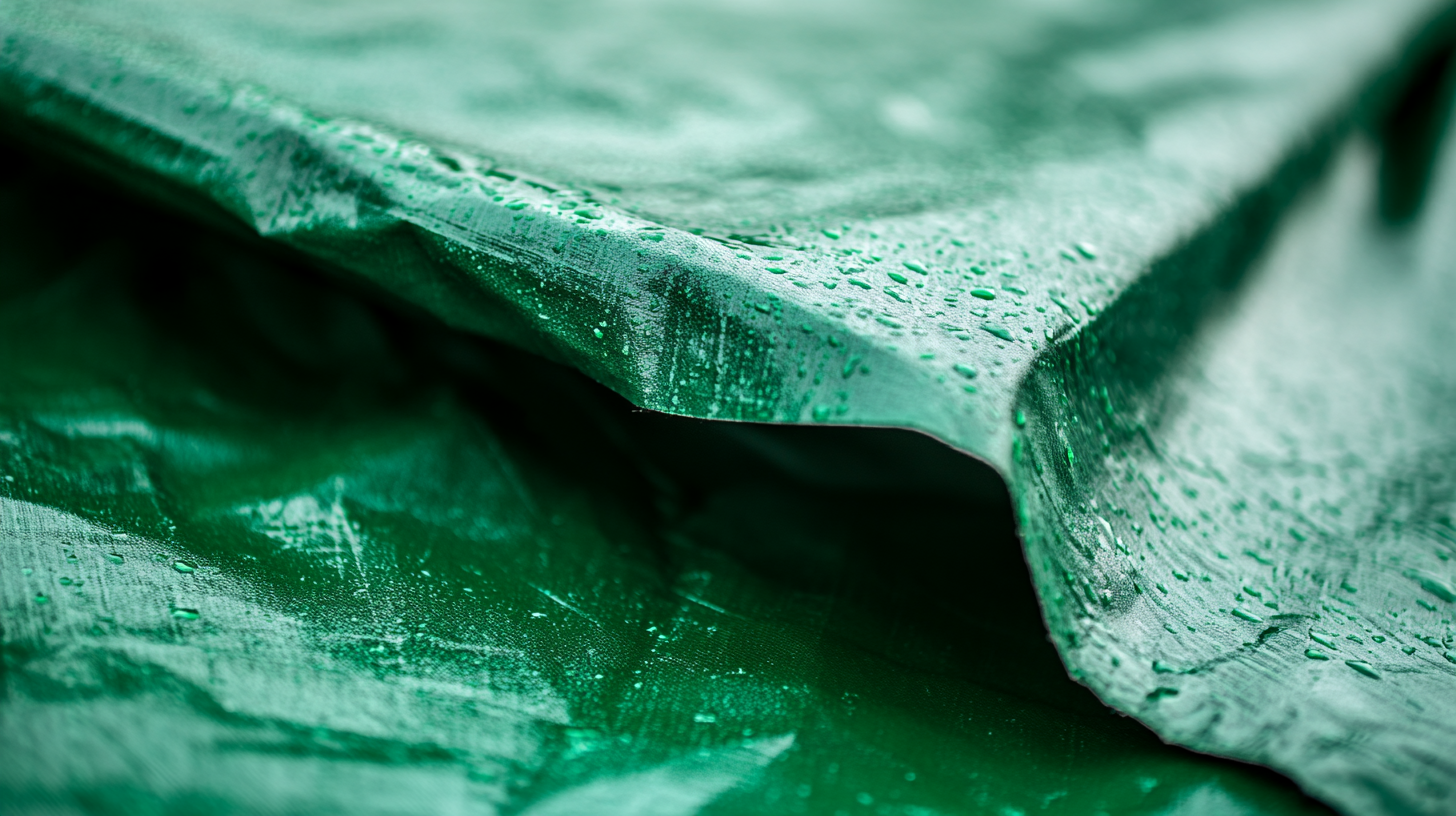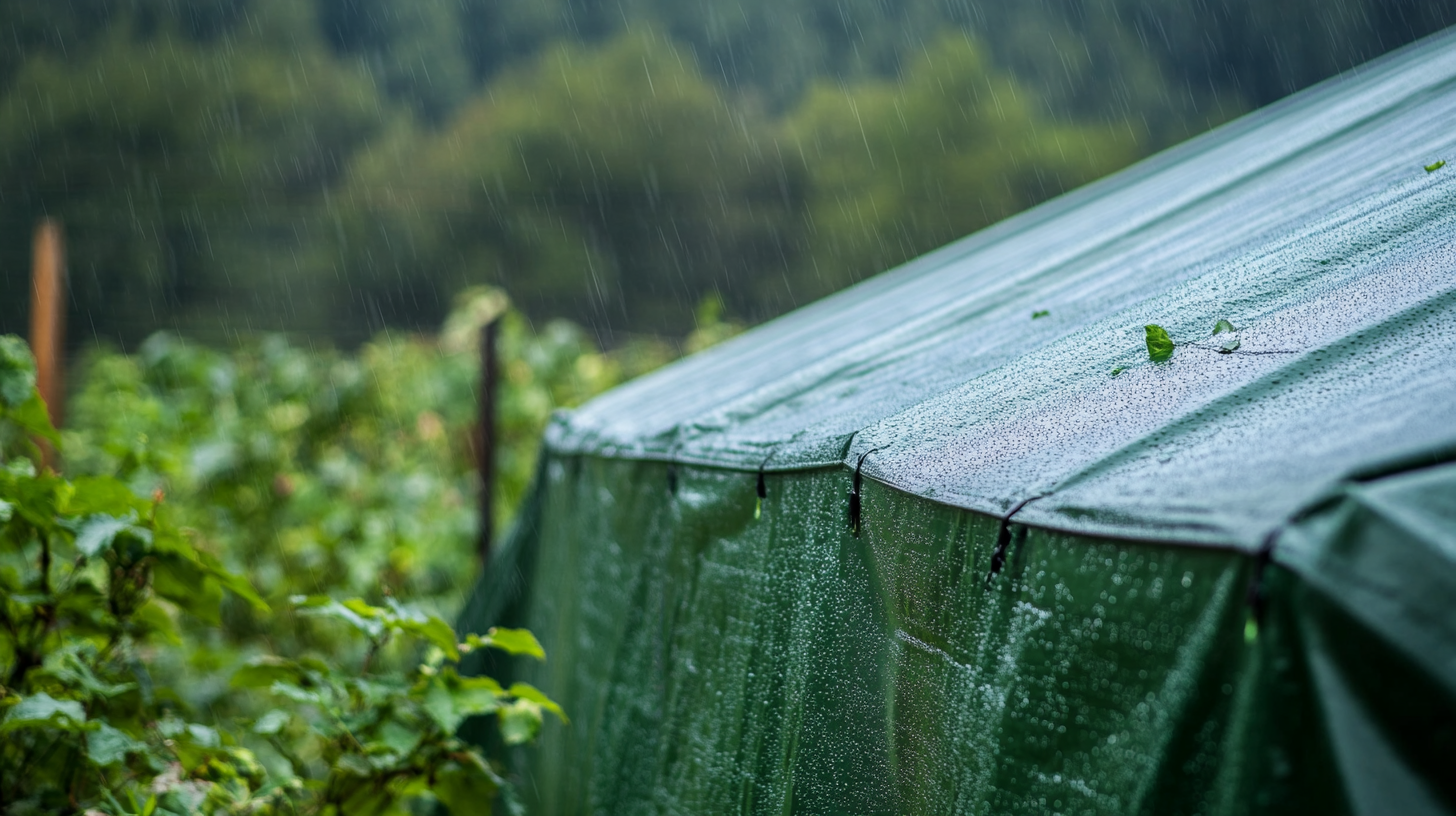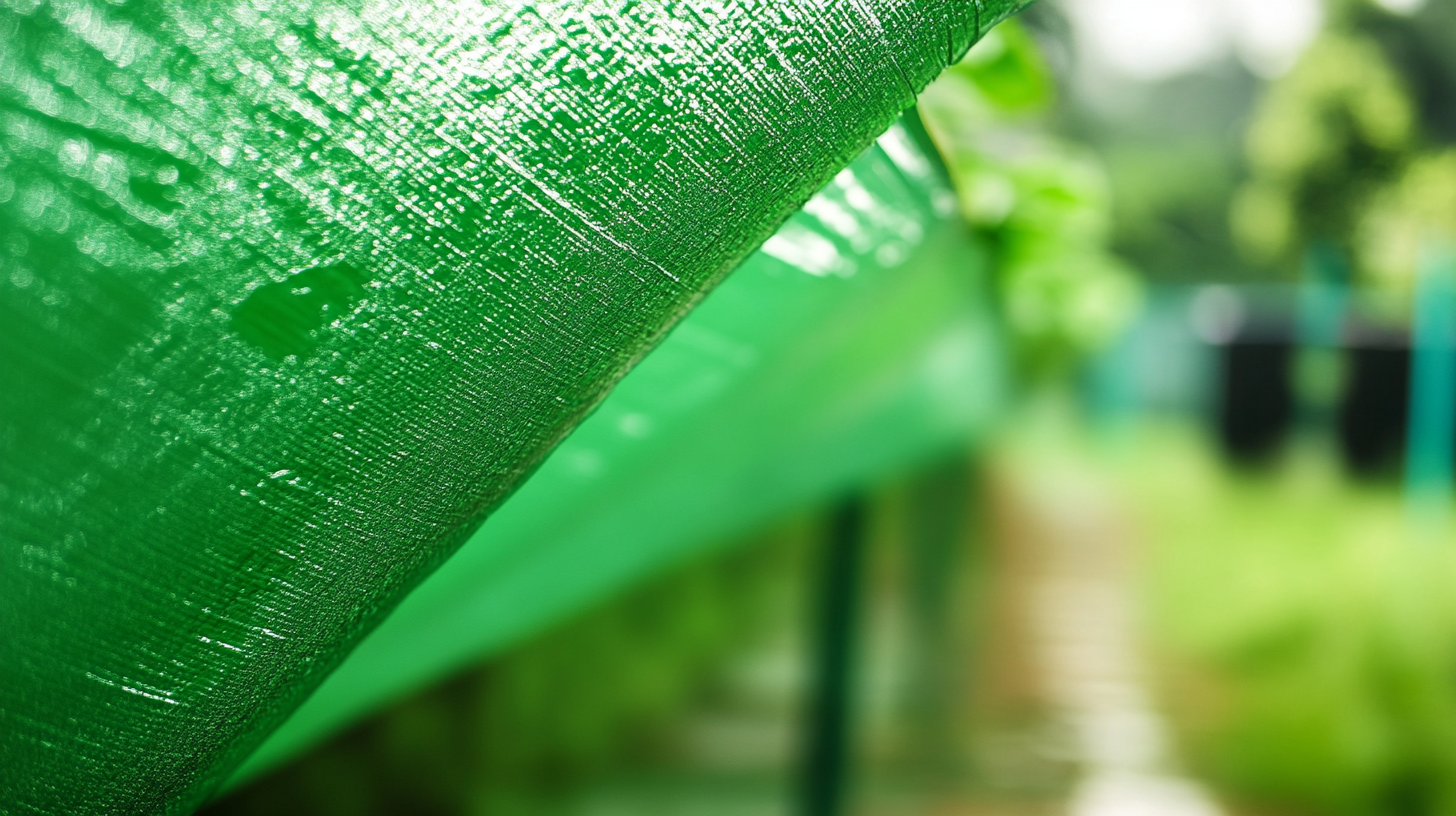The use of these materials at the present time is probably at its most vital compared to previous times in the face of changing situations in the environment. One of the materials that you can use is Pe Tarpaulin Green. Its versatility, it is being used from construction sites to outdoor events. This blog covers everything from specifications to key features of PE Tarpaulin Green for readers so that they can make informed choices regarding their project.
Understanding the special features of PE Tarpaulin Green is a must for any person willing to invest in long-lasting and environmentally friendly tarpaulins. In this guide, we will cover seven incredible features of PE Tarpaulin Green such as tough, weather resistant, and recyclable. Be you a contractor, event planner, or just someone who considers sustainability very important, this blog contains everything you would need to maximize the gains brought forth by PE Tarpaulin Green. Discover here what this great material can do to your next project while saving the environment.

This PE tarpaulin green is chosen as an environmentally benign option with a multitude of applications that cut across various fields. The durability-charting polyethylene tarpaulin still holds flexibility in the midst of manufacturing. Besides pleasing to the eye, green also denotes eco-friendliness. Most common use for PE tarpaulin in green is in agriculture, where it is used as protection for crops and equipment from the sun, rain, etc.; in construction, on the other hand, the same tarpaulin is used in scenarios that demand temporary weather-shielding structures or weather elements barriers. During these activities, the lightweight and transportable properties of the tarpaulin are of great essence: camping and picnicking. Characterized by its apparent strength and versatility, the PE tarpaulin becomes a fast-growing class of safe material considered in other sectors as well.

Green tarpaulin provide PE versatility from various applications to benefits to the environment. Among the key specifications of the material, several features really stand out. Of all the material features, first, it is high-density polyethylene. This property makes it waterproof and UV resistant, hence outdoor use.
Secondly, lightweight but very strong, so durability but does not compromise operation easiness. The tear-resistant property lets it face tough conditions, thus contributing to long life. The green color provides aesthetic values because it blends with natural conditions, especially to those concerned with the environment.
Customizable sizes and thicknesses are available to suit individual or industrial needs. Knowing these specifications will help users know what they are looking for when selecting the best PE tarpaulin for their applications.

In terms of tarps, durability and resistance to the weather are important criteria that should never be overlooked in the selection. Most people know that PE tarpaulins are very robust and can serve various outdoor applications. They remain functional under ultra-harsh conditions like rain, snow, and UV rays. It is of major importance to those wanting tarpaulins used temporarily for shelter, during outdoor events, or for protective covers.
Another usability factor of PE tarpaulins is light weight. It may be moved, transported, and set up easily, and setting up is by these means made possible at outdoor events. From camping to conducting a festival-or sheltering from the weather while on site for construction work-these have durability and weather resistance, making them perfect for all-day usage. You can put your mind at ease and know that, with time and wear, your investment will pay off in a practical way and give you confidence in it.

But to talk of the environmental impact of PE tarpaulin, it must dwell on the sustainability aspect. PE tarpaulins are made of polyethylene, a substance that is strong, and resistant to weather. Thus making that last the longer term will provide numerous purposes and reduce replacement and, thus, waste going to landfills.
In addition, progressive manufacturing processes now give way to more eco-friendly PE tarpaulins. Most manufacturers have already lured the carbon footprint of production, while recycling potential of polyethylene creates a tact for circular economy redevelopment rather than discarding used tarpaulins. Such a manner will serve not only practical but also eco-friendly usage of the PE tarpaulins.
It consists in the maintenance of PE tarpaulin green products to ensure their longevity and performance. Cleaning needs to be done frequently. A simple combination of soap and water can remove dirt and debris without harm to the material itself.
Never use harsh chemicals, nor even abrasive scrubbing devices that can damage the integrity of the tarpaulin. Before storing, let your tarpaulin dry completely to avoid developing molds and mildew.
It is better to roll the tarp than fold it so the shape will be maintained and creasing will not occur which will make the tarpaulin weak after time. Ideally, store it in a cool, dry place away from direct sun rays to preserve its color and strength.
This adds to the sustainability that can be touched with the use of PE tarpaulin green products. These tips promise much longer life for PE tarpaulin green products and save using these products very often as they be made possible. These practices will enable a more eco-friendly dimension through the use of tarpaulin materials.
The key features of PE tarpaulins include durability and weather resistance, making them suitable for various outdoor applications.
PE tarpaulins can withstand harsh weather conditions such as rain, snow, and UV rays, ensuring functionality even in challenging environments.
Their lightweight nature makes PE tarpaulins easy to transport and set up, making them ideal for camping, festivals, and construction projects.
PE tarpaulins have a reduced environmental impact due to their durability, allowing for multiple uses and less frequent replacements, which minimizes waste.
Many manufacturers are adopting eco-friendlier production methods that reduce the carbon footprint and enhance the recyclability of polyethylene.
Yes, polyethylene has a good recycling potential, which helps promote a circular economy by allowing used tarpaulins to be repurposed rather than discarded.
PE tarpaulins can serve multiple practical purposes such as protective covers for outdoor events and equipment, and temporary shelters during emergencies.
By being durable and reusable, as well as being recyclable, PE tarpaulins contribute positively to environmental preservation efforts.
Yes, their durability and weather resistance make PE tarpaulins effective for constructing temporary shelters in various outdoor situations.
Yes, the robust construction and resilience of PE tarpaulins provide assurance that they will withstand wear and remain functional for a long time.